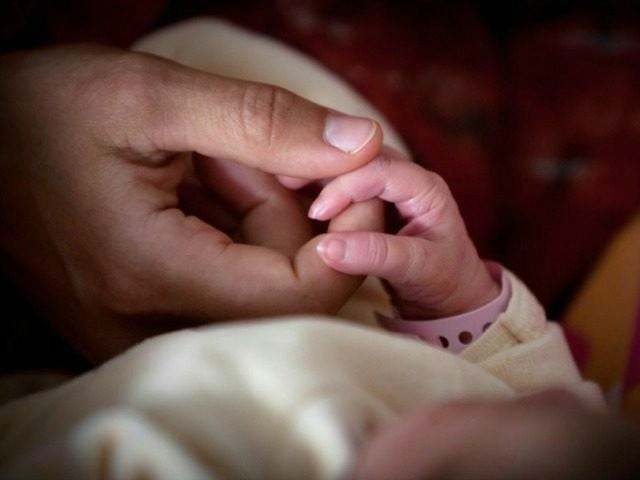Man sues firm for 'paternity leave harassment'
This is a rare suit in a country struggling with one of the world's lowest birthrates

This is a rare suit in a country struggling with one of the world's lowest birthrates. PHOTO: AFP/FILE
The 38-year-old, who has remained anonymous, is suing his employer sportswear maker Asics for 4.4 million yen ($41,000) in damages.
He says that after he took paternity leave, he was transferred to jobs that bore no relation to his skills or experience -- and has accused the company of doing this to punish him and deter others.
By law, Japan offers comparatively generous parental leave. Both parents can take up to a year off, with additional renewable six-month periods if a nursery place is unavailable.
But only 6 per cent of fathers take parental leave, compared to more than 80 per cent of mothers who use their allowance beyond the mandatory eight weeks after birth.
The disparity, activists say, is partly due to pressure from employers and a society that prizes long work hours.
The plaintiff took a year's leave in 2015-2016 when his first child was born, and another year in 2018-2019 after the birth of his second child.
Japan announces ¥322m human resource development scholarship
Among the small number of men in Japan who take paternity leave, more than 70 per cent are away for less than a fortnight.
On Thursday, the man told the court he was accused of not being a "team player".
"But it's wrong. I believe the company is attempting to squash an individual who tried to correct its injustice," he said.
"The management in fact seems to value when men work outside and women stay at home," he added.
Asics denies any wrongdoing and says it held "sincere" discussions with the man, his lawyer, and labour union officials.
"It is regrettable that we did not reach a final solution. We hope to clarify what actually happened in the course of the trial," it said in a statement.
Fathers in Japan face harsh criticism for taking leave, despite being legally entitled to do so as the government tries desperately to boost the birthrate, the man's lawyer Naoto Sasayama said.
"The culture established in a post-war Japan expects men to be the sole breadwinner. Stay-at-home men are considered extremely strange," he said.
"That idea is no longer accepted but some people still can't understand it," he said.
Parental leave is not paid for by employers, but government subsidies are available.
The plaintiff says he experienced what is known in Japan as "pata-hara", short for paternity harassment.
After returning from his first paternity leave, he was transferred from previous roles in marketing and HR to a job in a warehouse at a logistics subsidiary.
Japan 'to set up police unit' for disputed islands
He was later able to return to head office, but says he was given "idle work" in what he believes was "silent pressure" on him to quit.
Japan's birthrate was 1.42 in 2018 -- one of the world's lowest, and far below the 2.07 the country needs to maintain its population.
There are diverse causes for the problem, some of which the government has sought to address by increasing nursery spaces and encouraging women to return to work after having children.
There are small signs social norms may be changing, with thousands recently signing an online petition urging a major electronics chain to install changing tables in the men's bathrooms at its flagship outlets.
And rising political star Shinjiro Koizumi -- named environment minister in a cabinet reshuffle on Wednesday -- said before his appointment that he would consider taking paternity leave when his wife gives birth next year.
Another high-profile "pata-hara" suit, filed by a Canadian man against Mitsubishi UFJ Morgan Stanley, is also currently working its way through the courts.
There have been only a handful of suits brought in Japan by alleged victims of pata-hara, with judges tending to favour employers because of the difficulty in proving that perceived mistreatment was triggered by employees taking leave, lawyers say.



















COMMENTS
Comments are moderated and generally will be posted if they are on-topic and not abusive.
For more information, please see our Comments FAQ